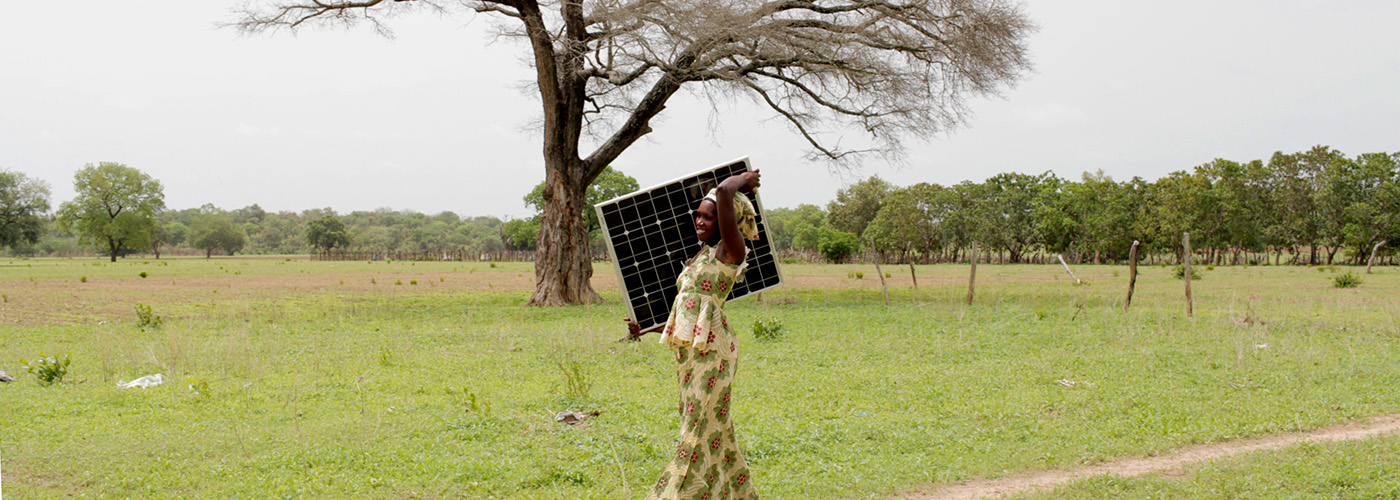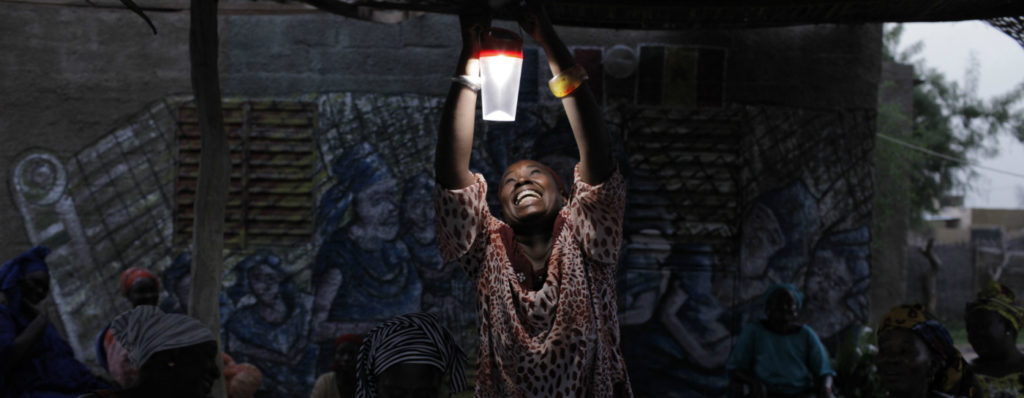Because Hivos believes that sustainable change will only happen if people undertake concerted and collective action, we bring together all relevant stakeholders in effective multi-actor initiatives. They allow rightsholders and their organizations, government and business representatives, creatives and technologists to co-create fair and inclusive solutions to complex problems.
Having started out as a small group of individuals, over the years ENERGIA has created a vast network with a variety of actors and stakeholders and has forged multiple alliances to advance gender inclusion in the energy sector.
Hivos’ collaboration with ENERGIA, for example, works towards universal, equal and equitable access to and control over sustainable energy for all by putting women at the center of its multi-actor initiatives with over 30 partners worldwide.
Women and energy
Women and men have different energy needs and use energy differently. Globally, women have less access to and control over energy services. This translates into time poverty and avoidable drudgery that endangers their health and safety and limits their educational and employment opportunities. It is important that these differences and gaps are acknowledged and taken into account when energy policies and plans are made and implemented. Only then we can ensure that women are not left behind in the energy transition and in reaching Sustainable Development Goal 7: Ensure access to affordable, reliable, sustainable and modern energy for all.
ENERGIA International Network on Gender and Sustainable Energy has been working at the intersection of gender equality and energy access since 1996. One of its main activities throughout the years has been and still is advocating for gender inclusion in energy policies, projects and programs at all levels. ENERGIA does not do that in isolation. Having started out as a small group of individuals, over the years ENERGIA has created a vast network with a variety of actors and stakeholders and has forged multiple alliances to advance gender inclusion in the energy sector. Here are a few examples of ENERGIA’s work with different actors and how these initiatives have led to groundbreaking policy making.
Kenya launches first ever national gender policy in the energy sector
In 2019, Kenya’s Ministry of Energy launched its Gender Policy. It was the first of its kind on the African continent. The Gender Policy aims to raise the level of gender awareness, change attitudes and inculcate a gendered work culture among staff in the energy sector. It represents an important milestone in the process towards ensuring affordable, reliable, sustainable and modern energy for all by 2030. ENERGIA and long-time partner Practical Action Eastern Africa helped this unique policy come into being.
Some years before, in 2007, the Ministry of Energy, ENERGIA and Practical Action embarked on this journey to make the countries’ energy policy more gender inclusive by starting with gender audits. Gender audits identify factors hindering gender mainstreaming in energy policies and programs and formulate strategies to address these gaps. The audits offered a clear roadmap on how to reform the energy sector in a more gender-sensitive way. This was a stepping stone for the next stage: a long trajectory of training and meetings to build awareness, capacity and support within the governing body. This resulted in the development of a gender strategy and policy for Kenya Power, the national utility. This strategy and policy has been used as a model by other electricity utilities in Liberia, Nepal, Ghana and Botswana.
Practical Action provided the Ministry of Energy with technical support to mainstream gender during the development and dissemination of the Sustainable Energy for All (SEforALL) Action Agenda and Investment Prospectus and in raising awareness in 15 counties. While encouraging the Deputy Director-Gender to prepare a gender policy to support the ministry to mainstream gender in its agencies, through its Gender and Energy Research Programme, ENERGIA provided relevant evidence to inform policy and practice. This evidence gave a further boost to the finalization of the Gender Policy.
West-African states’ directive on gender assessments in energy projects
In 2012 the ECOWAS Regional Centre for Renewable Energy and Energy Efficiency (ECREEE) started a process to support the implementation of energy efficiency measures within ECOWAS. For the design and roll-out of this process, a multi-stakeholder consortium was created with technical partners ENERGIA, the Austrian Energy Agency, Alternatives pour l’Energie (AERE), and the European Copper Institute (ECI), and funding partners UNDP, European Commission and Agence de la transition écologique (ADEME). The project focused on poor women and men in rural and peri-urban zones who would gain access to energy more rapidly and more easily as a result of higher energy efficiency.
Since women carry out many of the household energy related tasks – cooking, fetching water and fuel, preparing foods, small scale productive activities – and take many of the decisions on purchase of energy using devices, the project integrated a gender responsive approach into all of its activities. ENERGIA brought in technical expertise from ABANTU for Development from Ghana and Enda from Senegal. Activities of the consortium included stock taking and diagnosis in all ECOWAS countries, institutional capacity building at regional and national level, knowledge sharing, development of a White Paper on energy efficiency, formulation of gender-sensitive energy efficiency policies and programs, national and regional awareness raising and media campaigns, development of national and regional financial tools, and technical exchange of experience.
The result of this joint effort was the regional directive on gender assessments in energy projects, signed and validated by all fifteen ECOWAS member states in June 2017. The directive is now being rolled out in all ECOWAS countries.
Taking matters globally: the Multi-stakeholder Gender and Energy Compact
ENERGIA, together with UNIDO and GWNET, initiated a Gender and Energy Compact to advance a just and inclusive energy transition. This compact, developed in the realm of the UN High Level Dialogue on Energy held in September 2021, is one of its kind in putting women and gender equality at the center of achieving SDG7. It commits to supporting and accelerating action towards a just, inclusive and gender-equal energy transition.
The Gender and Energy Compact is currently endorsed by 45 state and non-state stakeholders.
The Gender and Energy Compact brings together governments, private sector, academia, civil society, youth, and international organizations. It is currently endorsed by 45 state and non-state stakeholders. The Governments of Canada, Ecuador, Iceland, Kenya, Nepal and Sweden are among the signatories, as are the African Development Bank, several UN organizations, the International Renewable Energy Agency (IRENA), the Private Financing Advisory Network, the International Institute for Sustainable Development, the Clean Cooking Alliance and the IKEA Foundation.
The coalition aims to work towards a just, fair and inclusive transition focused on the following outcomes:
- Energy and time poverty and drudgery affecting women are eliminated by increasing women’s access to and control over sustainable energy products and services.
- Countries and regions (re)formulate and adopt more inclusive and gender-responsive energy access and transition pathways, strategies and policies.
- Women-owned and led businesses have increased access to productive resources, such as finance, sustainable energy, entrepreneurial capacity and business development services.
- Career advancement avenues for women working in the energy sector are created: women enjoy decent and productive employment; workplace policies and practices support recruitment and retainment of women; women are equally involved in policy and decision-making.
- Knowledge, mechanisms, tools, and sex-disaggregated data are more available and of better quality.
The full compact can be downloaded here, an overview of the signatories here.






